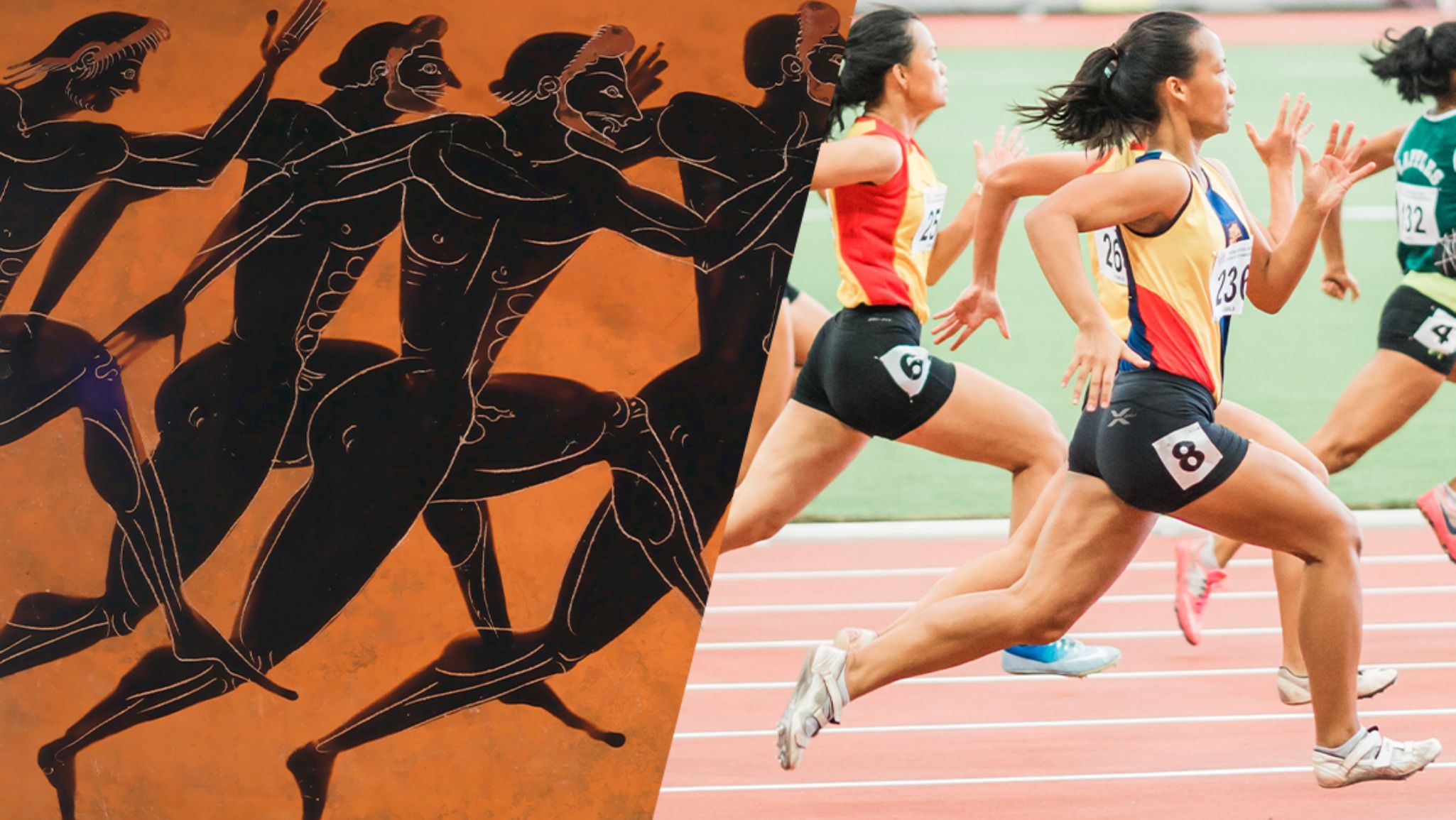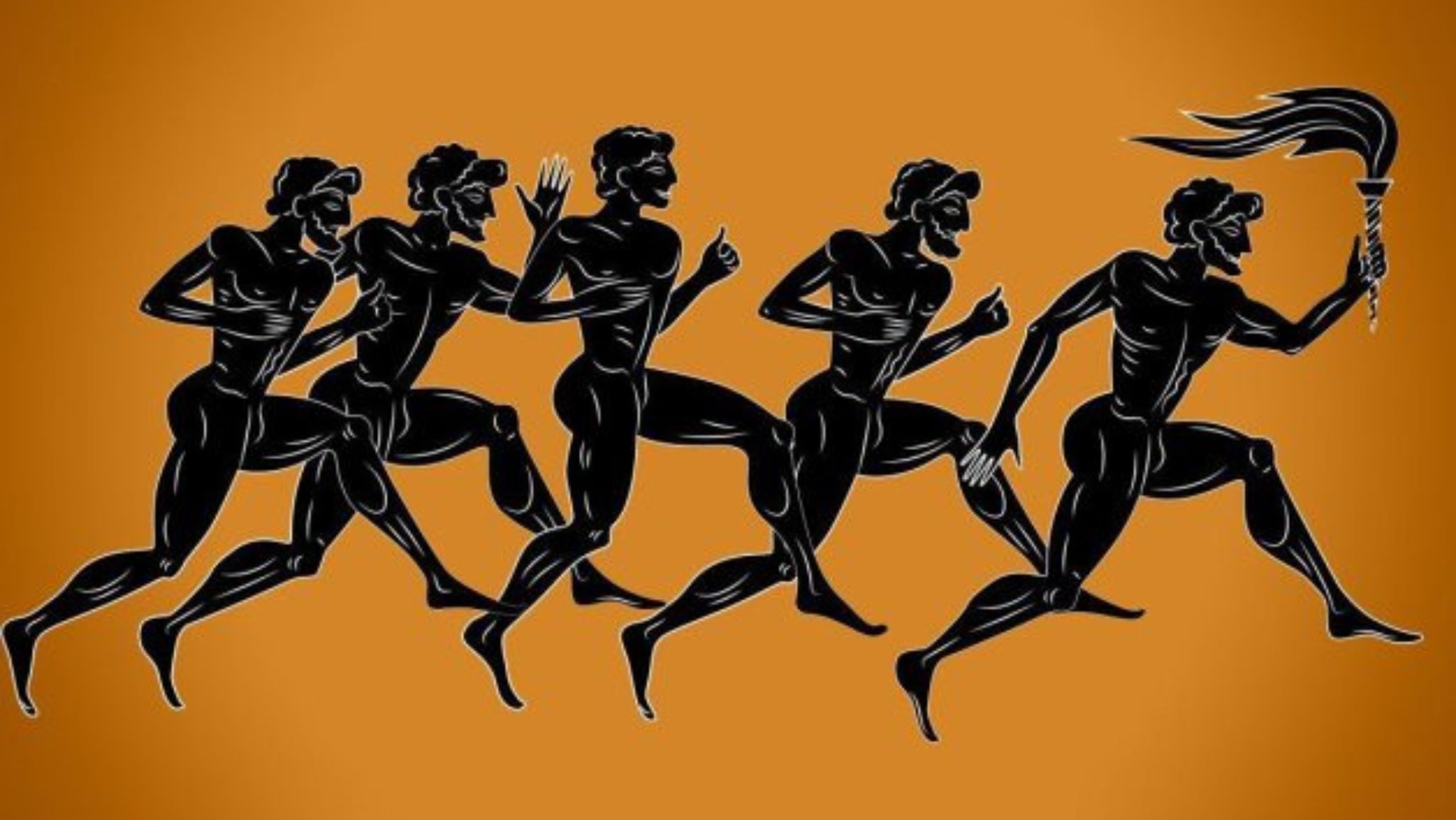Ever wondered how the fierce foot races of Ancient Greece compare with today’s high-tech Olympic showdowns? When you dive into the history of the Ancient Olympics vs Modern Olympics, it’s like stepping into a rich tapestry woven from sports achievements, cultural milestones, and technological breakthroughs. This rivalry spans centuries from humble beginnings in 776 B.C.E., dedicated to Zeus, to spectacular global events watched by millions today.
The transformation from olive wreaths to gold medals reflects more than changing times; it reveals humanity’s enduring spirit of competition and excellence. But how exactly did we get from there to here? Let’s take an invigorating sprint through history.
Table of Contents:
The Ancient Olympics vs Modern Olympics – Key Differences

The Olympics, then and now – are worlds apart. From chariot races to martial arts, strict rules to married women, the ancient games were a far cry from the global spectacle we know today.
Origins and History
The Olympic Games’ roots run deep, all the way back to ancient Greece. The first recorded Olympics, in 776 B.C., was a religious festival held in honor of the god Zeus.
For over a thousand years, athletes and spectators gathered in Olympia every four years (an “Olympiad”) to pay homage through sports, sacrifices, and hymns. That is, until Emperor Theodosius I put the kibosh on the ancient Olympics in 393 C.E.
Fast forward to 1896, when Pierre de Coubertin revived the Olympic tradition in Athens. But this time, as a secular event celebrating nations and culture on a global stage.
Events and Sports: Ancient Olympics vs Modern Olympics
The ancient Olympics may have had fewer events than its modern counterpart, but they were no less intense.
Forget the 100-meter dash – try a 600-foot race in the nude. Or a chariot race where taking a spill could cost you more than a medal. And let’s not forget the combat sports, like boxing and wrestling, where a knockout meant just that.
While today’s Olympics feature various athletic competitions, from swimming to gymnastics, the spirit of pushing human limits remains the same.
Participation and Eligibility
In the ancient Olympics, only free Greek men could compete. Married women? Forget about it – they couldn’t even watch, let alone participate.
The rules were strict and woe to those who broke them. Take Emperor Nero, who was once disqualified for attempting to bribe the judges.
By contrast, the modern Olympics welcomes athletes from all nations, genders, and walks of life. Though, to be fair, it took until 2012 for women to compete in every sport.
For ancient Olympians, the ultimate prize was an olive wreath crown. But that’s not all – victors also received a hero’s welcome back home, complete with cash prizes, free meals, and even statues erected in their honor.
Modern Olympic medalists may not get a lifetime supply of free dinners, but they do receive those coveted gold, silver, and bronze medals. And, of course, the glory of standing atop the podium while their national anthem plays.
The Decline and Revival

The ancient Olympics endured for centuries, surviving wars, invasions, and the rise and fall of empires. But in 393 C.E., Emperor Theodosius I, a Christian, ended the “pagan” festival.
The Olympic flame was extinguished, seemingly forever, until Pierre de Coubertin rekindled it over 1,500 years later.
Inspired by the ancient Greeks, Coubertin saw the Olympics as a way to promote peace and unity through friendly competition. And so, in 1896, the modern Olympics were born in Athens.
The Olympic movement is still going strong after two world wars and a pandemic later. This is a testament to the enduring power of the human spirit and our love of a good sporting event.
Key Takeaway: Ancient Olympics vs Modern Olympics
The Olympics have evolved from an ancient religious festival in Greece to a modern global event, celebrating not just sports but also culture and unity. While the games themselves have changed dramatically – think nude races versus synchronized swimming – the core spirit of challenging human limits has stayed constant. Participation has opened up vastly, welcoming athletes from all corners of the world and walks of life.
Conclusion: Ancient Olympics vs Modern Olympics
So there you have it—the marathon run through time from the “Ancient Olympics vs Modern Olympics.” What began as a modest foot race in honor of Zeus has evolved into an international spectacle that continues to captivate hearts worldwide. This isn’t just about tracksuits versus tunics or stadiums versus sacred groves; it’s about our unchanging quest for greatness across ages.
The same undying passion for victory is in every drop of sweat on the ancient fields or under bright stadium lights today. Our journey through these games tells us stories not only of athletic prowess but also of human resilience and unity. Maybe those old Greeks were onto something after all—stripping back everything else until nothing but pure competition remains might just be what draws us together even now.

